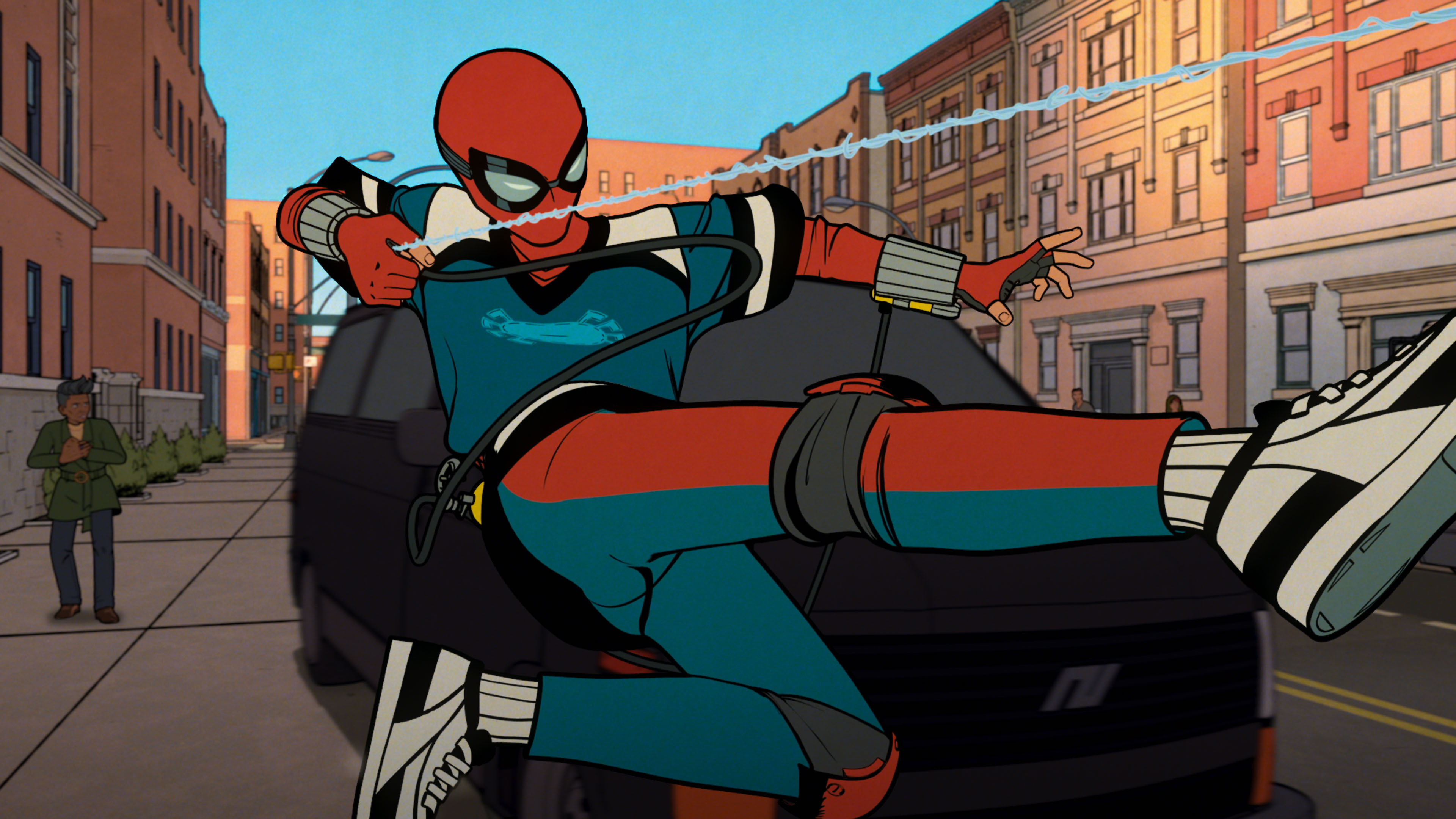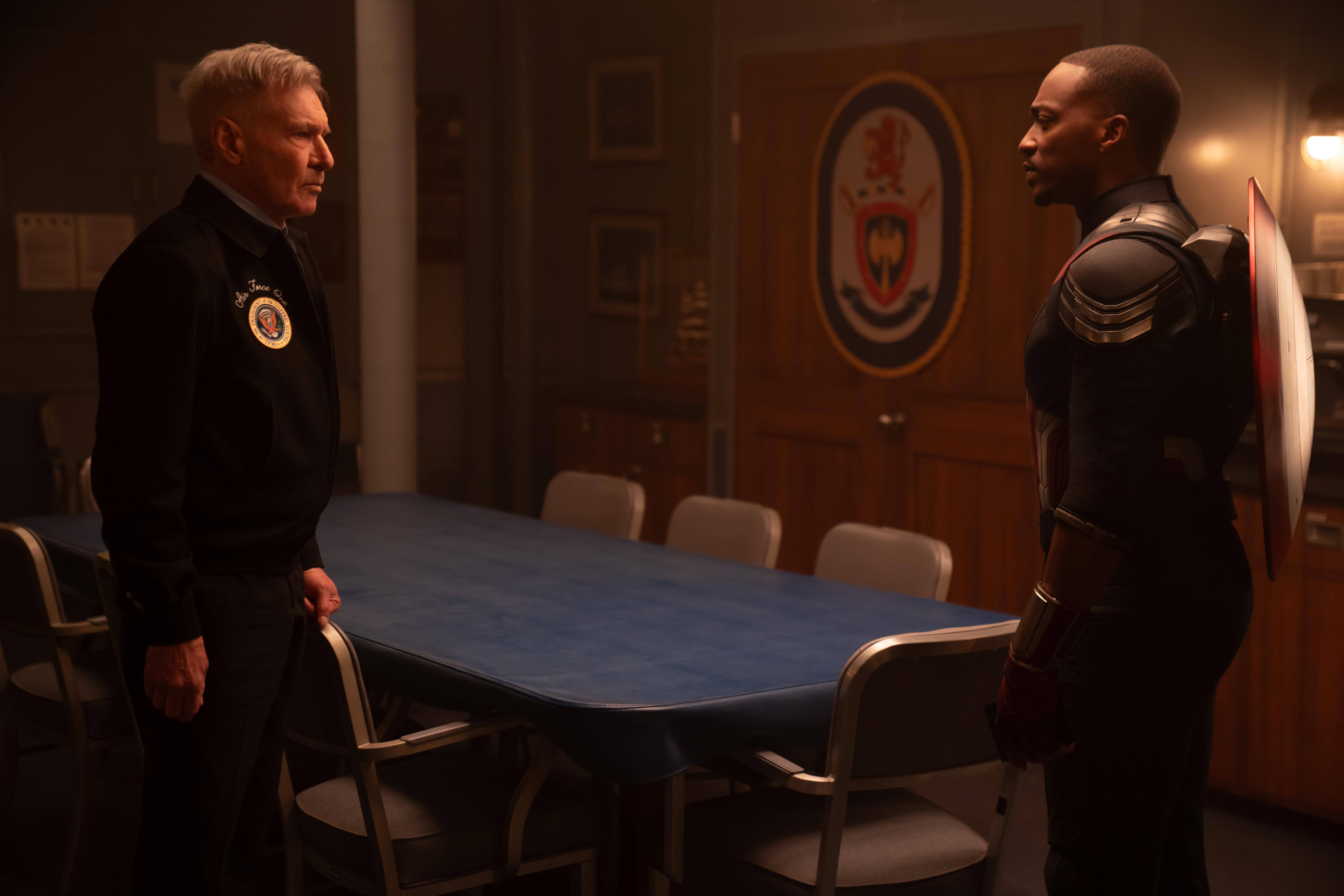The second season of Foundation starts slow. That makes sense: The initial few episodes are forced to pick up the pieces of the first season’s scattered finale, introduce half a dozen new characters, and set the stage for a whole new story set more than a hundred years after the first season.
In many ways, it’s like starting a whole new series — just set in a world you’re already familiar with, which means it has all the doldrums early-series episodes can bring too. But none of that stops Foundation from having an excellent final stretch of episodes and an outstanding ending, proving that starting fresh each season might be a great idea after all for Apple TV Plus’ Isaac Asimov adaptation.
[Ed. note: This story contains spoilers for Foundation season 2.]
Foundation season 2’s second half is when it really starts to sing, and the final run of episodes build to some particularly impressive and satisfying payoffs, as its sprawling cast finally meet each other and find their own neat and tidy places in the story. Hober Mallow and Constant’s sweet romance feels subtle but sturdily built; Hober’s scheming with Bel Riose feels shrewd and clever in a way that the show rarely aims for; and Gaal and Hari getting the second Foundation up and running feels like the series finally finding equal footing for the two of them to stand on.
:no_upscale()/cdn.vox-cdn.com/uploads/chorus_asset/file/24787292/Foundation_Photo_020201.jpg)
Even the various machinations of the Cleon clones hit their own emotional climaxes at just the right moments: Dawn gets to ride off into the sunset for a fairy-tale ending, Day finally gets the fight he’s been itching for all season (then gets bested by an airlock), and Dusk learns the secrets he’s been searching for about his existence (and dies for it).
Foundation season 2 is simply a really good season of television. But it’s not good in the way many streaming shows aim for, with sparks flying in the first few episodes. It’s HBO or peak-AMC great, like a season of Breaking Bad. Where streaming services front-load their conflicts to get viewers hooked, Foundation season 2 (like many Apple TV Plus shows) takes its time, building things from the ground up and putting all the pieces in the right spots for a great finale.
It’s impressive to see any show in the streaming era with the confidence to pace a series so deliberately, but Foundation is exactly the right one to pull it off. Besides the far-flung sci-fi technology that allows clones to be created, robots that will live forever, and cryo-sleep that can jump us hundreds of years between seasons, Foundation also has the strength of a phenomenal world and setting. There may not be another series on TV that’s even close to the gorgeous, detailed, and unique production design on Foundation. That makes being patient with the show as it sets up its new plots each season an easy ask; after all, if you sit still and watch, you’re going to see something great.
:no_upscale()/cdn.vox-cdn.com/uploads/chorus_asset/file/24787255/Foundation_Photo_020108.jpg)
This format of a new, almost self-contained story each season seems like the one Foundation is sticking with. Creator and showrunner David S. Goyer talked to Polygon near the conclusion of season 2 and explained that he sees Foundation as somewhere between a serialized show and an anthology series. It’s designed for each season to tell its own complete story about the war between Foundation and Empire, aided by the context and worlds of the seasons before it. But he wants there to be a “lovely sense of closure” at the end of the season, at least for the characters that won’t be back next season.
Goyer says he likes “resetting the table” for each new season, and the challenge of creating new characters audiences care about. He says initially he was a little worried about whether people would connect with new characters like Hober, Constant, and Bel. In the end, fans have loved them.
“That makes me feel very optimistic about the future of the show,” Goyer says, “that we can introduce completely new characters that you’re totally going to fall in love with.”
:no_upscale()/cdn.vox-cdn.com/uploads/chorus_asset/file/24787261/Foundation_Photo_020203.jpg)
But Goyer’s also intent on keeping Foundation’s fans on their toes.
“We would be foolish if we just did the same trick over and over and over again,” Goyer says of starting each season with a mostly fresh cast. “So, if the show goes on long enough, there will be some characters that we’ll introduce [and] will be in one season, one and done. And there are other characters that we might introduce in season 3, they might be [there for] seasons. I just never want to fall into a rhythm where the audience is [like], Oh, I know what they’re going to do.”
But Goyer also cites Game of Thrones as an inspiration, saying, “I think it’s important to kill characters that you like.” And only keeping certain characters around from season to season certainly helps build extra attachment to make those deaths even more impactful.
For now, Foundation hasn’t yet been renewed for a third season. But with Goyer already talking about it, and with the excellent taste of season 2’s finale still on our tongues, it’s hard not to get excited about what Goyer and his team might try in season 3. We’ll just know to be ready for a methodical start this time.








